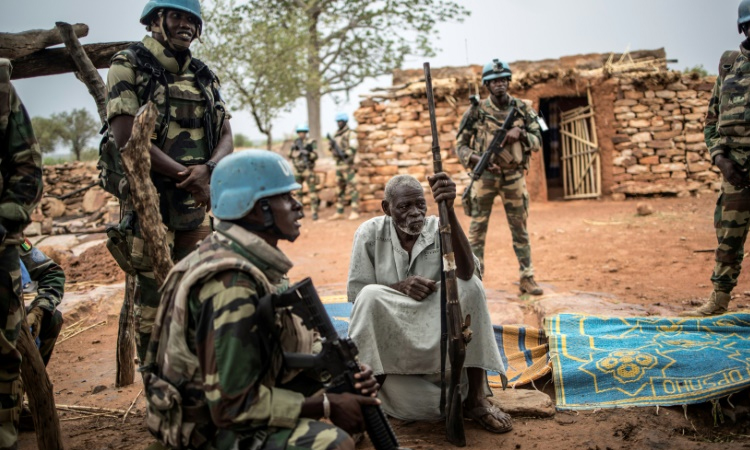News Flash
News Flash

ABUJA, April 29, 2025 (BSS/AFP) - Violence by jihadist groups in the Sahel is overwhelmingly fuelled by local weapons, often acquired by raids on the African militaries, new research published Tuesday said.
UK-based outfit Conflict Armament Research (CAR) tracked a decade of weapons seizures from armed groups operating in the two borderland areas that have become conflict hotspots: the tri-border region of Burkina Faso, Mali and Niger as well as the Lake Chad basin comprising Niger, Chad and Nigeria.
Islamic State Sahel Province and the Al-Qaeda-affiliated JNIM both battle for control in Niger, Burkina Faso and Mali, but "there appears to be no evidence, however, that the groups are able to access weapons directly from outside of the central Sahel," the report said.
The research dovetails with many analysts' understanding of why the groups, including Boko Haram and rival Islamic State West Africa Province (ISWAP), in Nigeria, have become so powerful.
Many such armed groups in the region trace their origins to local political grievances in countries where governance and the rule of law were already weak.
It was their local effectiveness that attracted the attention of global jihadist groups, rather than the other way around, report co-author Leo Jarry told AFP.
"They're very local and very opportunistic actors. And then because they're efficient, they get recognised at the central level of Al-Qaeda and (ISIS)," Jarry said.
Roughly 20 percent of these groups' weapons came directly from national military stocks, based on CAR's analysis of 726 weapons seized between 2014 and 2023 -- part of a larger set of 5,890 weapons researchers documented across the region in that time period.
However, Jarry described the 20-percent figure as a likely underestimation, adding that materiel captured from military forces makes up the biggest single weapons source.
Another key source are so-called "legacy weapons" from previous conflicts in a region awash with guns and rebellions.
The acquisition of military-grade materiel has created a "vicious circle", co-author Matthew Steadman said.
"As they become more powerful, as they seize more weapons, as they hit more outposts, then their ability to keep doing that increases exponentially," he added.
A March attack on Cameroonian troops stationed in Wulgo, Nigeria, as part of a multinational force highlighted jihadist groups' turn in recent years towards recreational drones, customised into deadly, explosives-laden killers.
Supply chains for such tech remain limited in much of the Sahel, constraining their use.
But when ISWAP released photos of the weapons cache it claimed to have recovered from the attack, eagle-eyed observers spotted drones among the bullets and machine guns -- helpful for replenishing equipment used and lost in the attack.